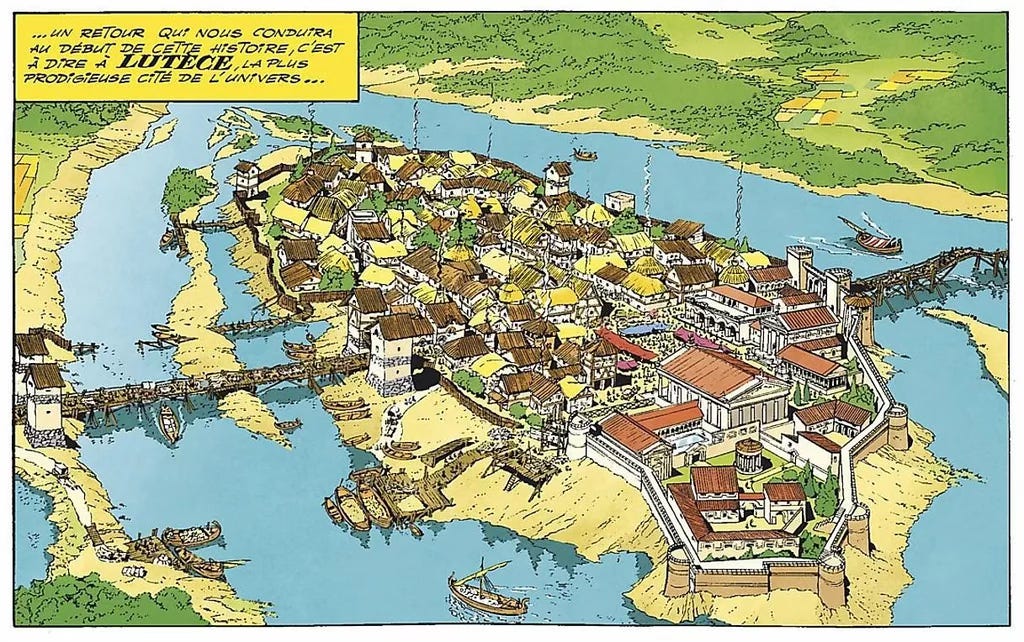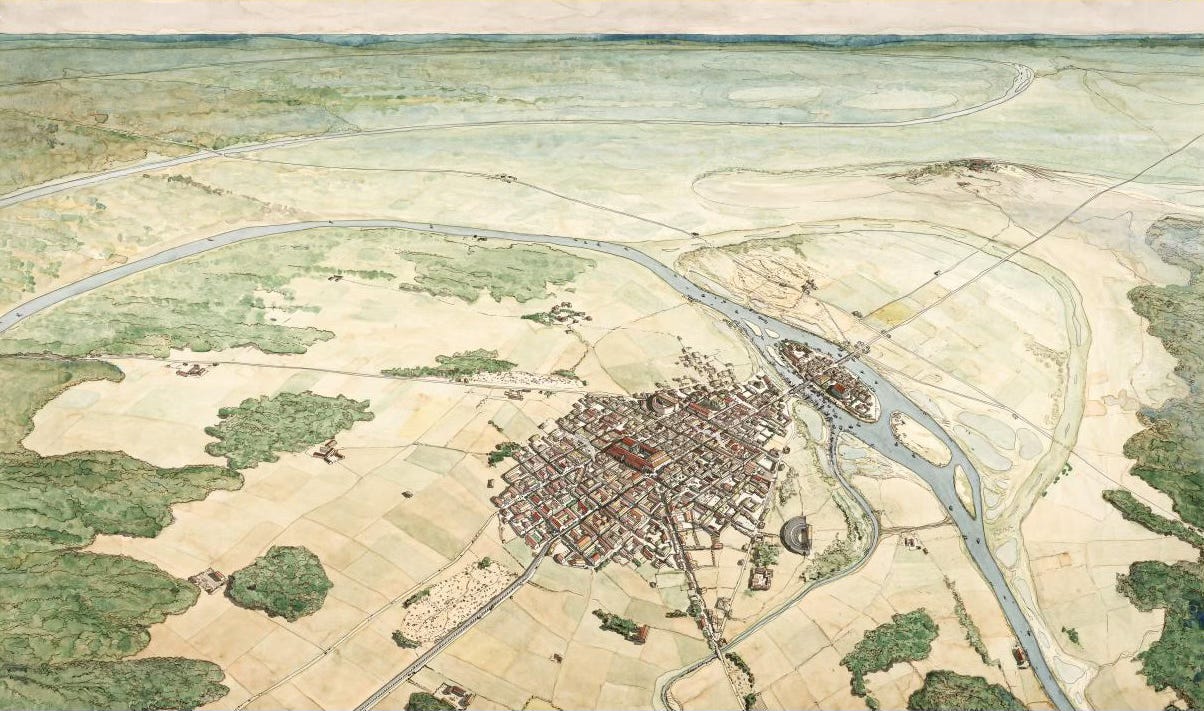France has had a total of nine different capitals, inlcuding places that temporarily acted as seats of government due to political unrest and wars. Overall, the location of the capital has changed 13 times. Yet Paris, the heart of France, has strangely never been officially named its capital by law - despite having stood as the de facto and symbolic center of power and culture for over 400 years of the country’s history.
Settled in the 3rd century BC by the Celtic tribe Parisii (the city's eventual namesake), it was a key trading hub. The Romans found Paris - which they named Lutetia - to be the best place in the region to cross the Seine. Despite it being an important trade route between modern-day Germany and Spain, Lutetia was initially not ranked highly among the seven cities of its province. So how and why did Paris rise to prominence?
From provincial city to capital
Paris gained recognition and eventually became the capital of Roman Gaul due to a combination of advantages, including militarily. Its location on the Île de la Cité in the middle of the Seine provided a strong defensive position, making it difficult for enemy forces to capture. The river’s natural barriers, together with the need for long, exposed bridges to approach the city, made it a military stronghold during the eventual decline of the Roman Empire. [2].
In addition to its defenses, Paris had many natural resources that contributed to its development. The region had high-quality limestone for building, clay for roof tiles, and gypsum for making plaster [3]. Additionally, there was plentiful timber during the time of the Parisii on the hills of Montmarte, Ménilmontant, Belleville, and the Montagne Sainte-Geneviève. And in the Roman era, timber was found further afield in the forests along the Somme river, which was important as a fluvial trade route and - unlike the Seine - never froze, overflowed, or dried up [4, 5].
The French capital could have easily become Lyon, or Lugdunum as it was known in Roman Gaul. Lyon was better positioned as it connected northern Europe to the Mediterranean (as well as Rome itself), and its location at the confluence of the Rhône and Saône rivers meant that trade and transportation was greatly facilitated. The city’s influence was greater than its location or attributes, as it was also the administrative capital of the Three Gauls.
As the Roman Empire declined, partly due to the Frankish conquest under King Clovis, the Franks advanced from the northeast, with Paris being the first major Roman outpost they encountered after winning a battle against the Visgoths in 508. Frankish rulers saw the city’s defensive and political advantages and its importance grew from there.
Clovis did not have a permanent capital or centralized government but by choosing Paris as his burial site, he gave the city significant symbolic value. His grandsons nearly came to blows over who would rule the city but finally decided it should be a common possession and a key symbol of their dynasty [6].
Another show of the city’s importance was during the reign of Eudes, or Odo of France, after he was coronated the king of West Francia in 888. Already the Count of Paris, his rule saw the gradual emergence of a separate West Francia following the decline of Carolingian rule.
Finally - if such a word can even be used - further solidification of Paris as central to the French monarchy came by the late 12th century. Under Philip Augustus, the Louvre was built, the royal archives at the Palais de la Cité were established, and the royal administration was centralized, placing Paris at the epicenter of royal power.
To find out how the city of Rome came to be, see my article on that topic.
Additional information
1 - During my research I found an intriguing short article saying another location - in the Paris suburbs - is the original site of the Parisii, not the Île de la Cité.
Sources
1 - Voyage en Gaule Antique: Paris
2 - Why is the capital of France historically not located in the centre of France?
3 - Paris Perspective #10: Lutetia and the foundations of empire
4 - Commerce maritime en baie de Somme
5 - Histoire de Paris par Fernand Bournon
6 - France in the World: A New Global History




